Venezuela finds itself part of a trial of strength, the Economist observes. A peaceful transition to a democratic, economically literate government could restore normality to what was once one of the region’s richest countries (see article). Equally, the Trump-Guaidó gambit might lead to conflict between armed groups or simply fail, leaving the regime more dominant than ever.
The United States strongly rejects offers from Mexico, Uruguay and the Vatican to mediate a dialogue between embattled Venezuelan President Nicolas Maduro and the head of the country’s opposition-controlled congress, Juan Guaido, AP reports:
A senior U.S. administration official explicitly mentioned the three in a briefing Thursday and added that “we reject any talks of any type of efforts that would allow Maduro to maintain himself in power.”
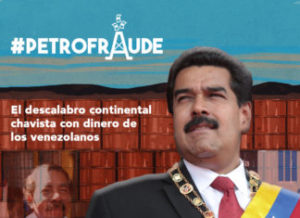
Connectas
If protests alone could oust a president, Maduro would already be on a plane to Cuba, says the Economist. Mr Guaidó’s backers have ways to help without resorting to force or dirty tricks. These fall into two categories, it adds:
- The first includes incentives for Venezuelans to demand change, for the army to abandon the regime and for Mr Maduro to go. Now that Mr Guaidó has been recognised as interim president, he stands to control billions of dollars of Venezuela’s foreign assets if power shifts. The national assembly has passed a law offering an amnesty to soldiers and civilians who work to re-institute democracy. Mr Maduro is being promised the chance to flee the country.
- The second way to help is to let Venezuelans know that the world is ready if Mr Guaidó takes power. The lesson from the Arab spring is that even a leader who starts by sweeping away a tyrant must bring improvements rapidly or risk losing support. The immediate priorities will be food and health care. The very fact of a new government will help stop hyperinflation (see article), but Venezuela will also need real money from abroad—international lenders, including the IMF, should be generous.
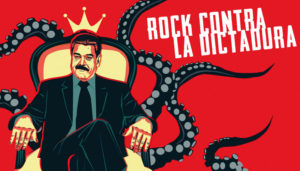 Maduro’s time is running out, but in order to manage his exit with the minimum of bloodshed, all of Venezuela must unite in pushing for a definitive end to his regime, says opposition leader Guaidó, the president of the Venezuelan National Assembly. For that, we need the support of pro-democratic governments, institutions and individuals the world over. It is imperative that we find effective solutions for the grave humanitarian crisis we are suffering, just as it is to go on building a path toward understanding and reconciliation, he writes for the New York Times.
Maduro’s time is running out, but in order to manage his exit with the minimum of bloodshed, all of Venezuela must unite in pushing for a definitive end to his regime, says opposition leader Guaidó, the president of the Venezuelan National Assembly. For that, we need the support of pro-democratic governments, institutions and individuals the world over. It is imperative that we find effective solutions for the grave humanitarian crisis we are suffering, just as it is to go on building a path toward understanding and reconciliation, he writes for the New York Times.
But the oppressors are also unhappy, the Economist adds. Despite the money to be made from corruption, the crisis affects the armed forces as it does the rest of society, says Rocío San Miguel, a Caracas-based military analyst. The salary of a major in the national guard is 36,000 bolívares a month, worth less than $15. “That is not enough for two days’ worth of food for a family of four,” says Ms San Miguel.
Poorly informed leftists are peddling the notion that the political crisis in Venezuela is the product of yet another heavy-handed U.S. “intervention” in Latin America, the Washington Post’s Jackson Diehl writes:
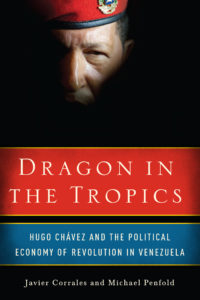 For the record, those regime changes happened in 1973, 1954, 1964 and 1965 — and what’s happening in Venezuela half a century later bears no resemblance to them. On the contrary, the movement to oust the disastrous populist regime founded by Hugo Chávez is being driven by Venezuela’s own neighbors, who until very recently had more help from Ottawa than from Washington. What we’re seeing, in an era of U.S. retreat and dysfunction, is a 21st-century model for diplomacy in the Western Hemisphere.
For the record, those regime changes happened in 1973, 1954, 1964 and 1965 — and what’s happening in Venezuela half a century later bears no resemblance to them. On the contrary, the movement to oust the disastrous populist regime founded by Hugo Chávez is being driven by Venezuela’s own neighbors, who until very recently had more help from Ottawa than from Washington. What we’re seeing, in an era of U.S. retreat and dysfunction, is a 21st-century model for diplomacy in the Western Hemisphere.
Moscow’s support for the Maduro regime is rooted in its own fear of people power, observers suggest.
“Politically, the Kremlin wants to insist that any political regime, even if it is catastrophically ineffective, can never be deposed by its own citizens,” said Aleksandr Morozov, a political analyst and frequent Kremlin critic, the Times adds:
Aleksandr M. Goltz, a military analyst, echoed those sentiments while noting that the relationship with Venezuela mirrored the foreign policy of the old Soviet Union, in which the Kremlin lavished arms and money on any country that barked at Washington.
“For Putin, the fight against color revolutions is a principle matter,” said Aleksandr M. Goltz, a military analyst. “It is not important where they happen, in Syria or Venezuela. Any attempt by local people to get rid of an authoritarian leader is seen by the Russian leadership as a conspiracy, masterminded by foreign intelligence.” The crisis has echoes of Cold War confrontations of old. Moscow relishes its alliance with Caracas, as Mr. Goltz put it, as “a hedgehog in America’s pants.”
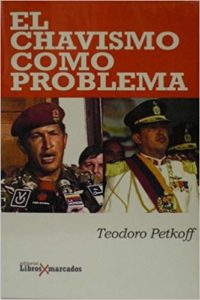 Whatever you think of that history, what matters now is that American influence is being used to the good. For the most part, support for the administration has been bipartisan, adds analyst Roger Lowenstein:
Whatever you think of that history, what matters now is that American influence is being used to the good. For the most part, support for the administration has been bipartisan, adds analyst Roger Lowenstein:
Venezuela has been a friend and an important trade partner. It was a democracy, albeit flawed, for as long as South Korea has been. Things went terribly wrong, but for the first time in recent memory, Venezuelans are refusing to be accomplices. Civilized nations must do no less.
Realistically, there are four useful actions that South American governments can take to help, analyst Oliver Stuenkel writes for Foreign Affairs:
- First, they can better coordinate the response to the Venezuelan migration crisis across the continent. Leaders should organize a regional summit to discuss the matter and decide to jointly coordinate the registration, distribution, and integration of Venezuelan migrants. They should also set up a fund to compensate the countries most affected by the migratory crisis, such as Colombia, Ecuador, and Peru.
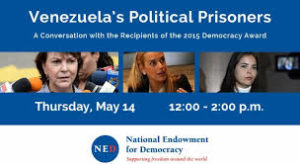 Second, regional governments can help coordinate the delivery of medical and humanitarian aid to Venezuela once the Maduro government—or any successor government—allows it.
Second, regional governments can help coordinate the delivery of medical and humanitarian aid to Venezuela once the Maduro government—or any successor government—allows it.- Third, South American states should offer amnesty and asylum to leading figures in the Maduro government. Although deeply frustrating, such a step would go a long way toward convincing Venezuela’s current leaders that they need not fight a bloody battle to remain in power to avoid the fate of Saddam Hussein in Iraq or Muammar al-Qaddafi in Libya—authoritarian leaders who were executed after relinquishing power.
- Finally, Argentina, Brazil, Chile, and others should use the collapse of the Maduro regime as an opportunity to deepen cooperation among their armed forces. This could operate through existing institutions such as the Council of South American Defense and should involve, among other initiatives, joint military exercises, joint missions to deal with natural disasters, and joint participation in UN peacekeeping. The goal should be to increase peer pressure on Venezuela’s military—which stands to lose from a transition to democracy, given the privileges it has accumulated under Maduro—to stay within its barracks under any future leader.








